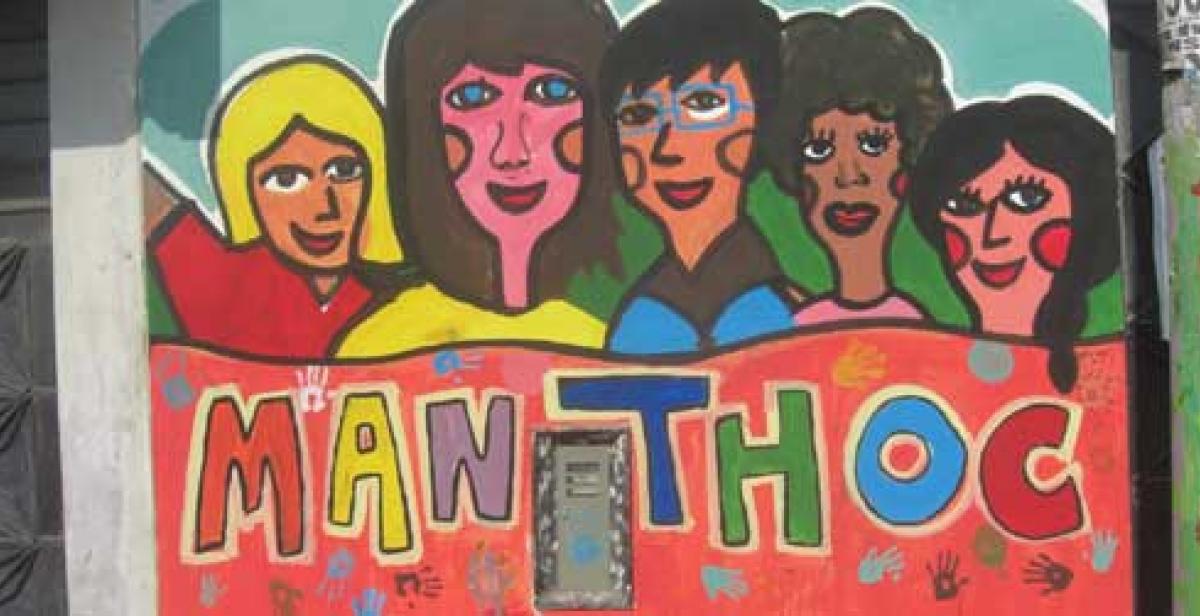My teaching placement is at MANTHOC, an organisation which fights labour exploitation and supports its young people who have pride in their working lives and know the value of independence. The name MANTHOC (Movimiento de Adolescentes y Niños Trabajadores Hijos de Obreros Cristianos) literally stands for “the movement of working young people, children of Christian workers.” This gives an instant indication of MANTHOC’s morals and what its values are based upon.
During my placement, working children from every MANTHOC organisation in Peru gathered to celebrate achievements, promote children’s rights to work and to elect new leaders. The event was held over three days by the MANTHOC alumni and ex-NNATs (Ninos, ninas y adolescents trabajadores – working children and youths) to unite the different cultures from Peru’s extremely diverse regions and to endorse support for the children. Meryl, Chloe and I attended the final day of the event where achievements were celebrated and conclusions were drawn.
The representatives from the regions were divided into three categories: the jungle (Huarango, Pucallpa), the mountains (Cajamarca, Ayzcucho, Cusco) and the coast (Lima). During our day at MANTHOC we had a Mass and an award ceremony for the newly elected MANTHOC leaders. Then to finish, a traditional dance was performed by the MANTHOC directors, including our very own, go-to guy, Juan Diego.
What the children say
Below is a variety of quotations from the young children that stuck with the three of us during the day. It is important to share these and realise just how strong children are and how efficiently a community can build its own future from so little.
“36 años de vida y acción promoviendo ciudadanía desde los NNATs hacia nuestra sociedad.”
“36 years of life and action promoting citizenship from our working children and adolescents who make up our society.”
“Los ninos trabajamos con alegria por la justicia y la paz.”
“We work with happiness for justice and peace.”
“Esperamos que el trabajo digno de los niños no se ha visto como un problema dentro de la sociedad sino que sea promovido y protegido por sus autoridades.”
“We hope that the worthy work of the children is not seen as a problem within our society but that it is promoted and protected by authorities.”
“Si al trabajo digno y no a la explotacion.”
“Yes to worthy work and no to exploitation.”
What the MANTHOC leaders say
I conducted an interview with two enthusiastic leaders (both NNATs) from the MANTHOCs in Cajamarca and Pucallpa: Lorena Cerdan Roncal (Pucallpa) and Ingrid Torres Ramires (Cajamarca).
How many NNATs does MANTHOC work with each year and is this a growing number?
We work with 3000 children and adolescents in Peru and it is a growing number because more people join the organisation and as this happens more events take place in the communities increasing the popularity. The aim is to work with many many more NNATs.
How do you think that foreign volunteers can help within MANTHOC organisations in Peru?
In Pucallpa, German volunteers teach maths and languages and also learn about Peruvian culture. The kids also love learning about other cultures so a cultural exchange takes place to broaden everybody’s horizons. The volunteers also go to work with the NNATs to really get to grips with our reality. Volunteers from more developed countries also bring new ideas to Peru to teach the kids new skills which develop the organisations themselves. They also bring new opportunities for the movement.
How does MANTHOC work within the local community to publicise itself and teach their peers about the reality of work?
We hold talks and conventions at schools and are also educated ourselves which gives us the chance to exchange experiences. Events and parties are also held to promote the rights of NNATs and teach about the motivation behind working. This brings more interest to the organisation and gets more people involved.
How do religious values reflect in MANTHOC’s values?
Catholic values give everybody from different cultures something in common. Religion creates harmony between the other organisations and establishes basic principles within MANTHOC.
What do you see for the future of MANTHOC and what do you want to achieve?
More NNATs in the organisation is the priority. This will gain more recognition for MANTHOC and if other people or ex NNATs can promote the cause this will increase the importance of MANTHOC. NNATs live in reality and we want people to have compassion and understanding of the importance of work for children.
What we learned
To conclude, the main points for how working as a child promotes justice and peace are the dignity and independence that is gained through work. These are promoted by allowing children the freedom and the choice to work either with their family or alone. Working also gives children control over their rights and skills that they could not gain just by going through academic education. It also teaches them about exploitation of child labourers, how to be responsible for themselves in the working world and embracing reality to become a constructive individual.
Not only is MANTHOC an environment that teaches children to be self-governing, it is the perfect place for them to come together to be liberated. They are able to actually be children who love to play, learn and just have fun with people of all ages in similar situations.
By ICS volunteer Eve Hollingworth.



